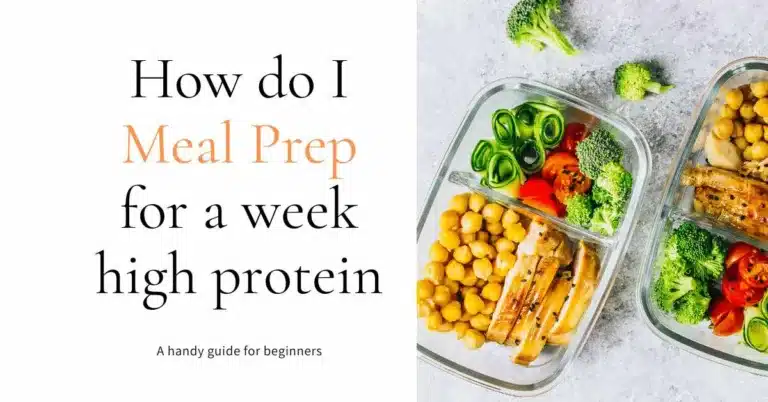Table of contents
Introduction
Meal prepping can be a game changer for maintaining a nutritious diet, especially when focusing on high-protein meals. Protein is crucial for muscle repair, bone health, and maintaining overall energy levels throughout the day.
Introduction to High-Protein Diets
Protein is a key macronutrient in any diet, vital for the growth, repair, and maintenance of tissues in the body. High-protein diets are often recommended for athletes, bodybuilders, and those looking to lose weight or enhance muscle mass. Understanding how to effectively meal prep with a focus on high protein can help you meet your health and fitness goals more efficiently.
Understanding Meal Prep Fundamentals
Meal prep involves planning and preparing meals ahead of time, which can be particularly beneficial for busy individuals. By planning meals that are rich in protein, you ensure consistent nutrition throughout the week. Learn more about meal prep basics in this comprehensive guide on What Protein is Best for Meal Prep.
Nutritional Considerations for High-Protein Diets
- Protein Intake Recommendations: The general dietary intake for protein is approximately 0.8 grams per kilogram of body weight. However, this amount increases depending on physical activity levels and fitness goals.
- Balancing Macronutrients: While the focus is on protein, it’s important to maintain a balance with carbohydrates and fats to ensure overall nutritional balance.
7-Day High-Protein Meal Plan Overview
This section would provide a day-by-day guide to preparing high-protein meals that meet a 2000 calorie daily goal. It includes three main meals and two snacks per day, with 30% of calories derived from protein.
Sample High-Protein Meals and Recipes
- Breakfast: Scrambled eggs with spinach
- Lunch: Turkey breast sandwich on whole grain bread
- Dinner: Grilled salmon with quinoa and steamed broccoli
Tips for Effective High-Protein Meal Prep
- Bulk Preparation: Cook large portions of protein sources like chicken or fish at the start of the week to use in various meals.
- Storage: Use proper storage techniques to keep your meals fresh and safe to consume throughout the week.
Utilizing Resources and Simplifying Prep
For those looking to simplify their meal prep process, consider resources such as Efficient High-Protein Lunches from Eating Well. Additionally, watch practical meal prep videos like this Meal Prep Guide Video on YouTube.
FAQs
How much protein do I need daily for a high-protein meal prep?
Typically, aim for 1.2 to 2 grams of protein per kilogram of body weight, especially if you are very active.
What are the best high-protein foods for meal prepping?
Lean meats, eggs, dairy products like Greek yogurt, and plant-based options like lentils and chickpeas.
Conclusion
This guide should serve as a comprehensive blueprint to help you navigate the complexities of preparing high-protein meals efficiently. By incorporating these strategies, you can enhance your diet and achieve your health and fitness goals more effectively.

